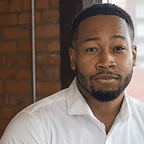Remembering Dr. King and Finding Guidance in His Legacy
Today, we celebrate a figure whose name is synonymous with the civil rights movement. A person whom we all have in common. Dr. Martin Luther King Jr., a reverend, scholar, activist, and father, was born on January 15th, 1929, and today we celebrate his legacy and contributions to expanding our freedom and opportunity here in the United States.
Ahead of what is likely to be one of the most tense times in American history, the 45th peaceful transition of power, we are burdened with the dueling realities of paying respects to the accomplishments of one of the most integral figures in American history and the dishonor of collectively falling short of his vision for this nation.
In our praise, we might be tempted to compare a seemingly crystal clear tale of racism being stifled by a savvy combination of people power, rainbow coalitions, and civil disobedience with the flagrant racism and bigotry that we saw at the capital just 12 days ago. In this comparison, we might also evoke the spirit of Dr. King by using a quote or two that offers a historical lens through which to view our current political moment.
“The arc of the moral universe is long, but it bends toward justice,” “Injustice anywhere is a threat to justice everywhere,” “Darkness cannot drive out darkness; only light can do that. Hate cannot drive out hate; only love can do that,” and many more are recounted today both in remembrance of the late reverend and in defense of our current political attitudes.
Today, I see it fitting to do the same. In a collection of sermons titled “Strength to Love” that was published in 1963, I take the passage:
Life’s most persistent and urgent question is, ‘What are you doing for others?
It is a question I ask myself daily in this difficult time in our history, as a virus runs rampant across our nation — disproportionately affecting the already vulnerable and disempowered — and the disease of racism and bigotry still afflicts so many of our citizens today. My charge is to question the systems that make such disparities our current reality, speak out against the heinous actions of racist radicals disinterested in peaceful discourse, and, most importantly, help those who have been wounded as a consequence of a nation that has fallen short in its duty to protect and support its people in one of its darkest chapters.
We must learn to live together as brothers or perish together as fools.
On January 20th, the pendulum of power moves in the direction of the Democratic Party, which has the opportunity, again, to make right a centuries old struggle, restore peace, and help the most vulnerable. That should be our undying priority as a nation. And if we are unable to meet this moment, heal this country, and deliver for the people; if Americans fail to remove racist tactics from its political ambitions, we will certainly perish as fools.
